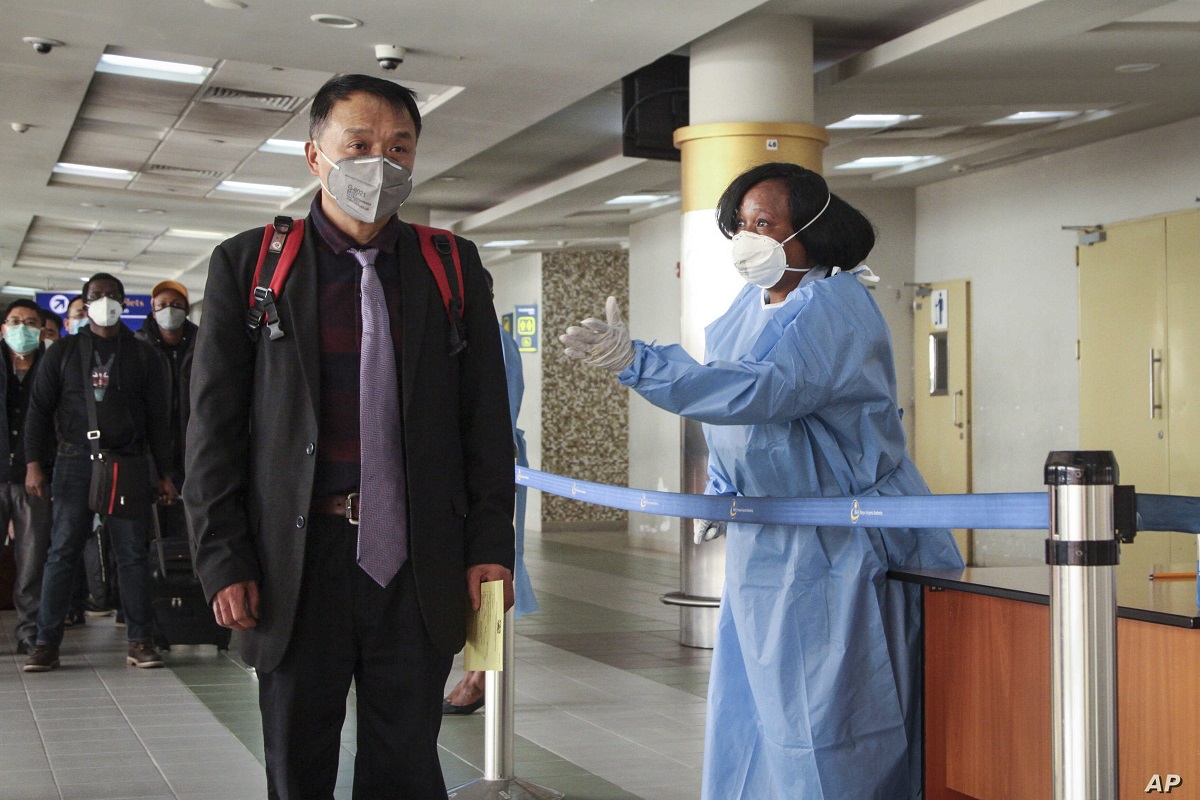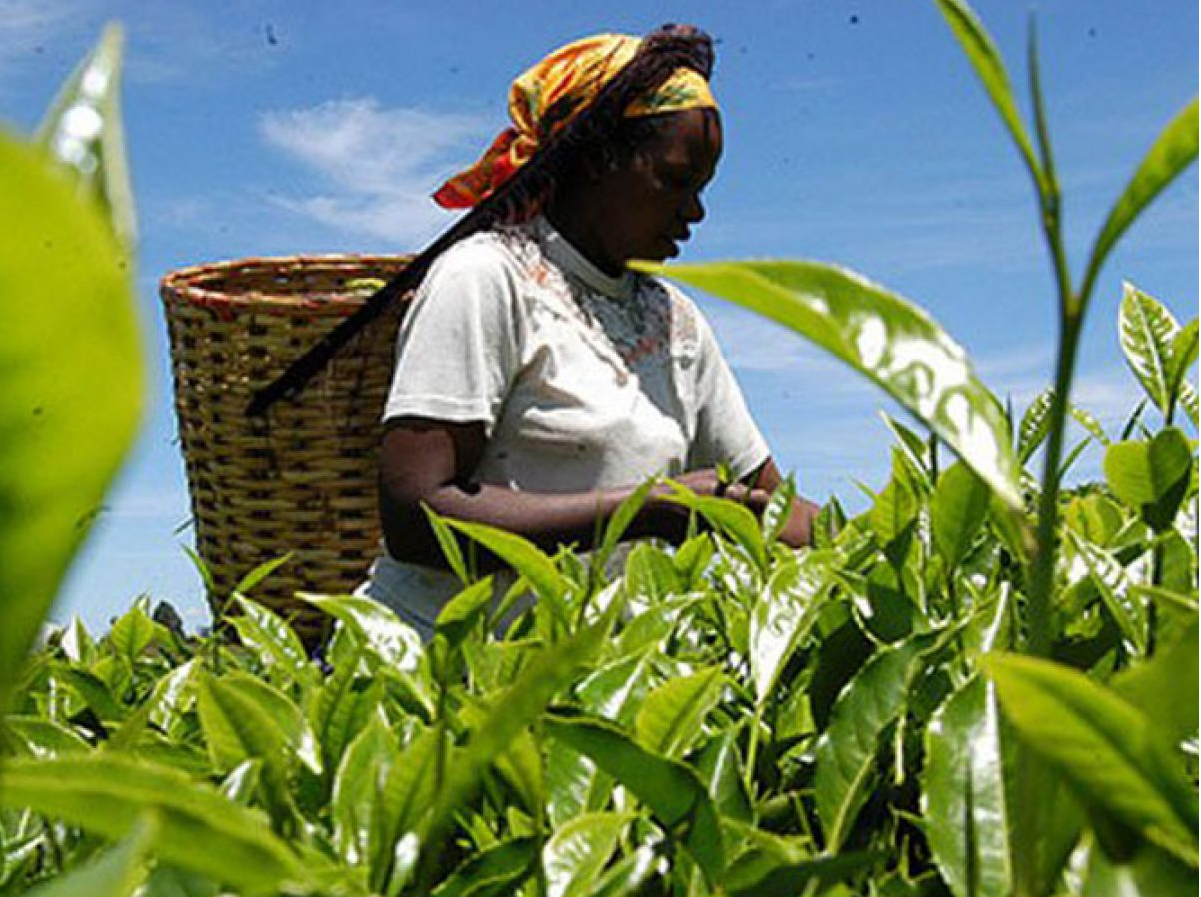Nigeria has confirmed the first coronavirus case of an Italian who returned to the country from Milan on February 25.
With the likelihood that the Covid-19 courtesy of the flights from China and elsewhere may get to Kenya, Kenyans should take precautions to ensure that they are on top of things, in case it happens.
Currently, there are more than 82,000 coronavirus cases recorded globally and despite Kenya opening the doors for those travelling from China, there are no quarantine policies in effect in Kenya, according to the US Embassy, Nairobi.
With the disease spreading rapidly outside China, one of the high profile personalities to be infected outside China is Iran’s deputy health minister and an MP. Both have tested positive in a country where 26 people have already succumbed to the disease.
See: Chinese Continue Arriving in Kenya as Coronavirus Spreads Beyond China
In addition to Iran, deaths outside mainland China due to the coronavirus have increased including 13 in South Korea and 14 in Italy as of Thursday (yesterday).
Finland, Norway and Brazil reported their first cases on Wednesday.
In Africa, Algeria reported its first case of COVID-19 on February 25 after a case reported earlier in Egypt.
WHO Director-General Tedros Adhanom Ghebreyesus, however, says that the outbreak has not yet reached the pandemic level.
So, what should you do to prevent the disease? WHO says basic hygiene is the answer.
Here’s what the WHO advises that you do:
What are the symptoms of coronavirus?
Symptoms can include fever, cough and shortness of breath. In more severe cases, infection can cause pneumonia or breathing difficulties. More rarely, the disease can be fatal.
These symptoms are similar to the flu (influenza) or the common cold, which are a lot more common than COVID-19. This is why testing is required to confirm if someone has COVID-19. It’s important to remember that key prevention measures are the same – frequent hand washing, and respiratory hygiene (cover your cough or sneeze with a flexed elbow or tissue, then throw away the tissue into a closed bin). Also, there is a vaccine for the flu – so remember to keep yourself and your child up to date with vaccinations.
Also read: Chinese Embassy, Kenya’s Ministry of Health Promise More Flights From China
How can I avoid the risk of infection?
Here are four precautions you and your family can take to avoid infection:
- Wash your hands frequently using soap and water or an alcohol-based hand rub
- Cover your mouth and nose with a flexed elbow or tissue, when coughing or sneezing, and throw away the tissue into a closed bin
- Avoid close contact with anyone who has cold or flu-like symptoms
- Go to the doctor if you have a fever, cough or feel that it is difficult to breathe
Should I wear a medical mask?
The use of a medical mask is advised if you have respiratory symptoms (coughing or sneezing) to protect others. If you don’t have any symptoms, then there is no need to wear a mask.
If masks are worn, they must be used and disposed of properly to ensure their effectiveness and to avoid any increased risk of transmitting the virus.
The use of a mask alone is not enough to stop infections and must be combined with frequent hand washing, covering sneezes and coughs, and avoiding close contact with anyone with cold or flu-like symptoms (coughing, sneezing, and fever).
Does COVID-19 affect children?
This is a new virus and we do not know enough yet about how it affects children or pregnant women. We know it is possible for people of any age to be infected with the virus, but so far there have been relatively few cases of COVID-19 reported among children. The virus is fatal in rare cases, so far mainly among older people with pre-existing medical conditions.
What should I do if my child has symptoms of COVID-19?
Seek medical attention, but remember that it’s flu season in the Northern Hemisphere, and symptoms of COVID-19 such as cough or fever can be similar to those of the flu, or the common cold – which are a lot more frequent.
Continue to follow good hand and respiratory hygiene practices like regular handwashing, and keep your child up to date with vaccinations – so that your child is protected against other viruses and bacteria causing diseases.
As with other respiratory infections like the flu, seek care early if you or your child are having symptoms, and try to avoid going to public places (workplace, schools, public transport), to prevent spread to others.
What should I do if a family member displays symptoms?
Also read: 5 Simple physical exercises to ease depression
You should seek medical care early if you or your child has a fever, cough or difficulty breathing. Consider calling ahead to tell your health care provider if you have travelled to an area where COVID-19 has been reported, or if you have been in close contact with someone with who has travelled from one of these areas and has respiratory symptoms.
Should I take my child out of school?
If your child is having symptoms, seek medical care, and follow the instructions from the health care provider. Otherwise, as with other respiratory infections like the flu, keep your child well rested at home while symptomatic, and avoid going to public places, to prevent spread to others.
If your child isn’t displaying any symptoms such as a fever or cough – and unless a public health advisory or other relevant warning or official advice has been issued affecting your child’s school – it’s best to keep your child in class.
Instead of keeping children out of school, teach them good hand and respiratory hygiene practices for school and elsewhere, like frequent handwashing (see below), covering cough or sneeze with a flexed elbow or tissue, then throwing away the tissue into a closed bin, not touching their eyes, mouths or noses if they haven’t properly washed their hands.
What is the best way to wash hands properly?
Step 1: Wet hands with running water
Step 2: Apply enough soap to cover wet hands
Step 3: Scrub all surfaces of the hands – including the back of hands, between fingers and under nails – for at least 20 seconds.
Step 4: Rinse thoroughly with running water
Step 5: Dry hands with a clean cloth or single-use towel
Wash your hands often, especially before eating; after blowing your nose, coughing, or sneezing; and going to the bathroom.
If soap and water are not readily available, use an alcohol-based hand sanitizer with at least 60% alcohol. Always wash hands with soap and water, if hands are visibly dirty.
Can pregnant women pass coronavirus to unborn children?
At this time, there is not enough evidence to determine whether the virus is transmitted from a mother to her baby during pregnancy, or the potential impact this may have on the baby. This is currently being investigated. Pregnant women should continue to follow appropriate precautions to protect themselves from exposure to the virus, and seek medical care early, if experiencing symptoms, such as fever, cough or difficulty breathing.
Is it safe for a mother to breastfeed if she is infected with coronavirus?
All mothers in affected and at-risk areas who have symptoms of fever, cough or difficulty breathing, should seek medical care early, and follow instructions from a health care provider.
Considering the benefits of breastfeeding and the insignificant role of breastmilk in the transmission of other respiratory viruses, the mother can continue breastfeeding, while applying all the necessary precautions.
For symptomatic mothers well enough to breastfeed, this includes wearing a mask when near a child (including during feeding), washing hands before and after contact with the child (including feeding), and cleaning/disinfecting contaminated surfaces – as should be done in all cases where anyone with confirmed or suspected COVID-19 interacts with others, including children.
If a mother is too ill, she should be encouraged to express milk and give it to the child via a clean cup and/or spoon – all while following the same infection prevention methods.












Leave a comment